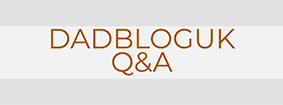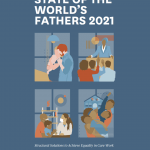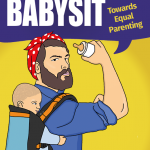Few people are as active in promoting involved fatherhood and positive masculinity as Gary Barker. He’s not only a leading author of the bi-annual State of the World’s Fathers report, but he’s a co-founder of both gender equality charity Promundo and MenCare, a campaigning charity focused on promoting men as fathers and caregivers.
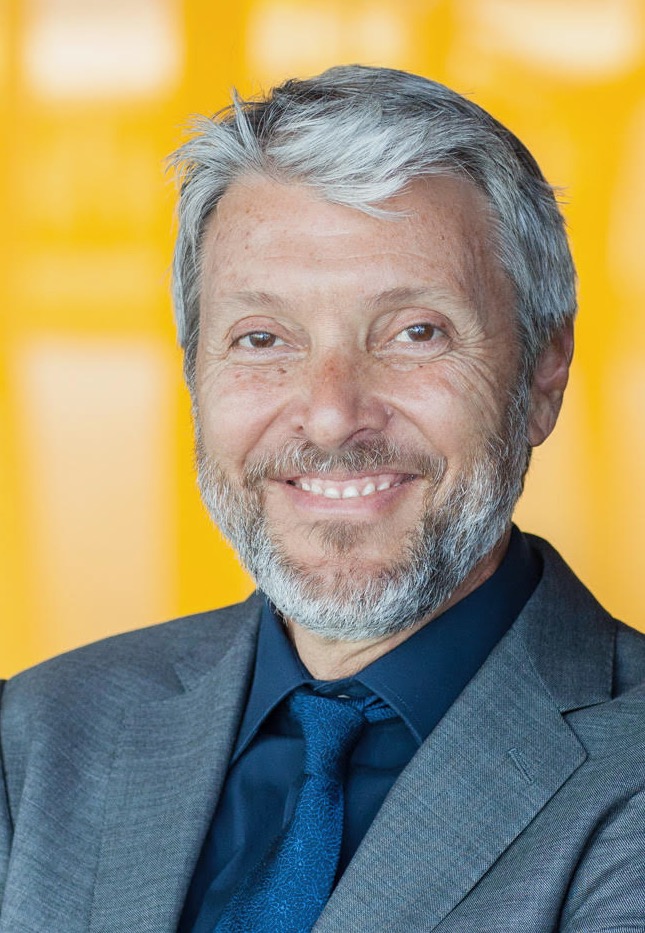
Gary isn’t simply an academic with a professional interest in these issues. He is a father himself and when his daughter was younger, he was her main carer (or stay at home dad, if you prefer to use such labels). I recently interviewed Gary for my podcast and this post is an abridged version of the conversation we had. I think it’s a ‘must read’ for anyone with an interest in parenting or gender equality.
Gary’s stance is very clear: Men aren’t encouraged to be caregivers. Nonetheless, men could do more to work with women to make the world a more equitable place for everyone.
Before I get on to my interview with Gary, a very quick word about the podcast. I would encourage you to listen to the entire interview, which you can do by clicking on the podcast badge below. I should also add that DadPodUK was a finalist in the Best Family Podcast category of the Podcasting For Business Awards 2021. I can reveal DadPodUK got the ‘runner up’ accolade. Considering I only launched the podcast a couple of months ago I am delighted with that result.
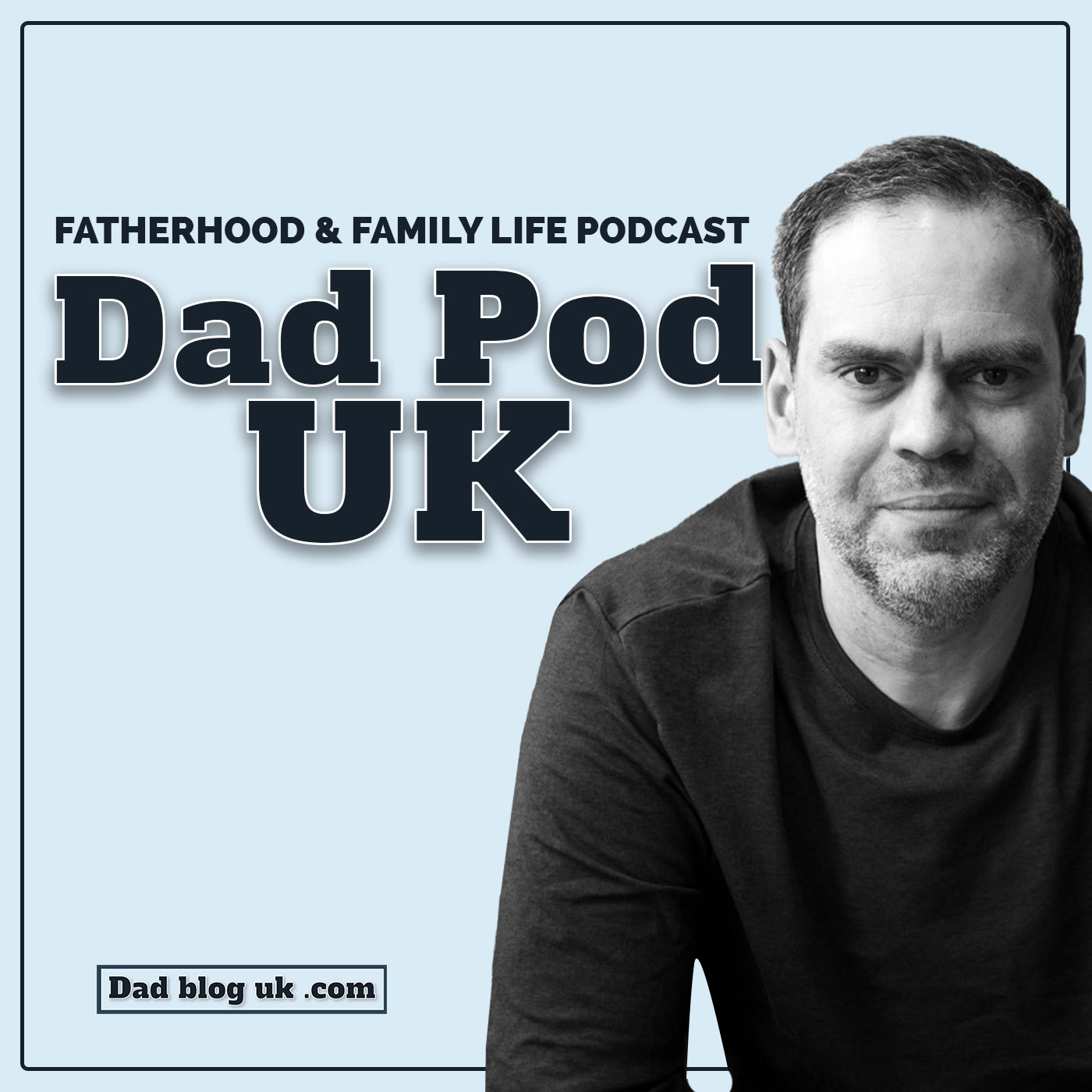
That said, here’s what Gary had to say. I hope you enjoy the interview and please do take the time to check out the work of Promundo and Mencare (you’ll find links at the bottom of this article).
Easy question first. Can you just introduce yourself and explain what Promundo does?
“So I’m Gary Barker, I’m a father, a partner to a Brazilian woman for many years, who’s obviously the co-parent with our daughter. I lived for many years in Brazil where I was initially doing work focused on girls in situations of sexual exploitation.
“I kept asking lots of questions about what we were doing with men? I was working with lots of women’s rights advocates and feminists who said we need men as part of this conversation.
“I had the backdrop of also being a father. For a portion of my daughter’s young life I was a stay at home dad. The personal and the political all came together. I’m also a developmental psychologist, so I look at how we grow and develop and over the life course, particularly how boys and men are socialised.”
There’s a lot to be said about the way boys and men are raised. I guess it explains their reluctance to take on caring roles?
“We’re not necessarily taught how to do it. And in much of the world, in our first moments of being aware, it is women who are doing that care, usually mothers but other female caregivers often.
“It’s about being taught, but also what we internalise. Even in our pre-verbal stage as humans, we see a world that says; ‘Exciting things happen outside the home, and those are often led by men…and the care of others is usually done by women, mostly mothers, but also others.’
“I think it’s easy for us to internalise that. We know biologically male and female are wired for care, but I think we bring boys into a world that says; ‘We (boys) don’t (care) and we kind of beat the care out of you.’”
This leads me on to a question I was keen to ask about. You have been a stay at home dad. Can you just describe your journey to taking on that role?
“My daughter was born when I was doing my doctorate in child development. I was studying how children theoretically grow and develop – in my particular lens – where men are in this caregiving discussion.
“As life circumstances would have it, my Brazilian partner was the breadwinner. She’s a both a therapist and a public health specialist, she had the full-time job. She also comes from a country that offers five months fully paid maternity leave. In the US, we still have the shame of being the global north country with zero days guaranteed paid leave at the federal level.
“She said; ‘Well you brought me into this crazy backwards country, who’s gonna care for our daughter when I have to be back at work?’ We thought about it and it made sense (that I become her main carer). It wasn’t that I had somehow seen some gender equitable light at that point. It was just what made sense for us.
“I never really sort of stopped and said; ‘I’m a stay at home dad.’ I just kind of thought ‘I’m a caregiver and this is how we do it’
“This was ’98 in the US where I was doing my PhD and there just weren’t any men doing this. I looked up statistics on it and probably at that point in US demographic trends, maybe 3% of households with children said the father was the stay at home full time or the primary caregiver.
“It was a role that came to me and I said; ‘I embrace it.’ But, I also want to be very humble, you know, my partner would have loved to have done more of the care work. Our economic situation was such that it made sense that I was there during the week.
“Also, we couldn’t have done it without an amazing co-caregiver, a Mexican immigrant nanny who sort of got our Latin American household vibe, who could flow in and support one of us and one of our roles and let us step away when we were doing other stuff. So, you know, I was raised, supported, nudged toward it by lots of others who made it possible.”
We go on to discuss the similarities between our two stories. This leads to some discussion about the label of ‘stay at home dad.’ Gary has some observations about this.
“I think as we look at an increasing gig economy and certainly during COVID, the barriers, the doors, the distance between work life and home life are just so much, thinner. They become categories that don’t necessarily hold up for a lot of folks. We’re doing a bit of the paid work stuff at odd hours that don’t fit within 9:00am to 5:00pm and the caregiving kind of flows between Zoom calls these days.
“I’ve been in Uber cars with male Uber drivers who were juggling their children’s school work on a phone call and saying;
‘Do you mind if I take this call?’
‘Absolutely, dude.’
“You know, juggle, this is what it’s about, which, you know, women have done forever as they’ve entered or been part of paid work. When I have conversations with men it’s occasionally like; ‘Don’t expect any extra points for this. This is called parenthood, this is adult life.’
“This multitasking, we could learn a lot as men about how to do it, and how do we push back those who think that we, as men, aren’t competent in doing it, and stand up and say; ‘Hey, wait a minute I am a competent caregiver, I promise. Let me show you.’”
I’m really pleased you said that, Gary, because if you are a male and the main caregiver, you get plaudits and get lauded. In truth, you are just looking after your children and don’t deserve any special treatment. That said, do you think it has got easier for men to be caregivers in their children’s early years?
“In some countries, it definitely has in the sense that some workplaces are more accustomed to it. It is important that we see other men doing it (caregiving).
“We had President Obama for eight years here. During his first visit to the White House, he wanted to see the bedrooms where his daughters were going to be, so he could help them feel good about moving in. He made fatherhood part of his identity and talked about. He wanted to be at that the dinner table so that he could discuss every day their lives and what’s up with their lives.”
I wanted to move on and discuss the State of the World’s Fathers reports that Gary has been involved in writing (a superb bi-annual analysis of fatherhood across the globe). I ask Gary to introduce the report and he jokes that one of the aims is to “Make Data Great Again!” Although a joke, he explains there was and remains a desperate need for data relating to dads from across the world.
“The idea for the State of the World’s Fathers report came out of looking at the State of the World’s Mothers from Save the Children, State of the World’s Children from UNICEF and State of the World’s Population that the UN Population Fund produces.
“There’s really nothing in there about fathers. We counted, like, one photo of a father in State of the World’s Mothers and counted, like, two mentions of fathers in State of the World’s Children. And we said; ‘You know what, men might be more involved than we think. It’s time to call attention. Things that we don’t count, don’t count.’
“Part of what we tried to do was to say; ‘What data do we have about men’s participation as fathers?’ The answer was: Not much.
“The first State of the World’s Fathers report in 2015, was a long review of what do we know about fathers or men as caregivers and how they matter for child development, children’s rights, for women’s wellbeing and for our own wellbeing as men. What data do we have? What’s missing in policies? And how could we begin to map it?
“We have always done this with other international women’s rights organisations (One of the lead writers has always been Oxford-based Nikki Van De Gagg, a renowned feminist writer who was gender lead at Oxfam). It’s about making the world supportive of men’s caregiving, and how we teach our sons that from the beginning.
“It’s about doing this in a lens that says: ‘Women globally are doing on average 3.3 times the amount of this on a daily basis.’ That’s probably one of the single biggest drivers of women’s disempowerment, of their inequality compared to men in terms of their salaries and their participation in political and community life.
“We’ve used the report as a conversation starter. We’ve had the chance to present it to Parliament in the UK, the Swedish parliament, we present it in Brazil’s Congress, US Congress, to a lot of international events and with women’s rights activists to say: ‘We’re in this together, this can’t be us against you.’ This can’t be us against them.”
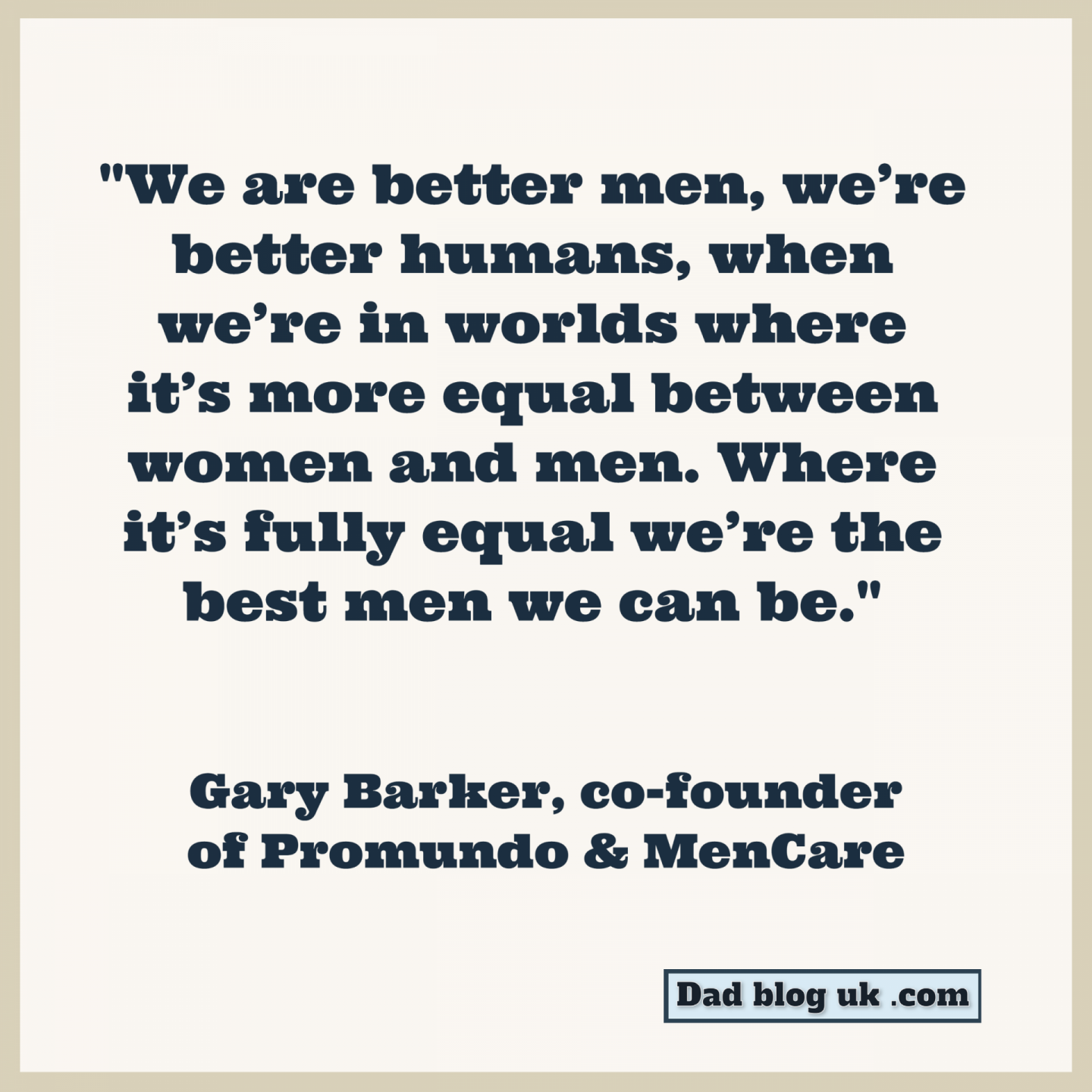
Gary explains the next edition of the State of the World’s Fathers report will come out in 2021 and will feature some analysis of the impact of COVID-19 on men’s caring roles. I explain to Gary I have heard mixed things about men’s engagement with their families during the pandemic and ask him what he thinks is happening in homes across the world.
“If we look at women who are paid care workersand the majority, particularly of frontline health workers and paid care workers in elderly homes and childcare settings are women. The impact is horrible.
“A few countries are paying attention and offering support services and looking at pay issues and looking at the rights for care workers in a way that I think is good news. It’s certainly not good news in terms of what those women’s lives and men who work as care workers, what their lives have been like during COVID. No question that’s been, and still is, a horrendous impact.
“If we look at who’s left the paid workforce, more likely it has been women more likely to leave than men, often because women were the part time workers or the flexi workers. We’ve clearly seen backward moves in terms of pay equity.
“That’s definitely been a step or two backwards. Then in terms of caregiving in the home, I think there’s something to be slightly optimistic about. We’ve done some research, we partnered with Oxfam, which carried this out in the UK and also in Canada. We did it together in the US, also in Kenya, Philippines and a few other countries have done research like this as well, finding that men are doing more of the hands-on caregiving during COVID. There’s more men at home, working from home, some women have lost their jobs, of course, so men are doing more of the hands-on care work.
“For those who say it will never change, a global pandemic called COVID, has nudged men, forced men, obligated men invited men to do more hands-on care work doing more care work that I think is good. Question is, you know, with a vaccine available will we revert to normal? Or will we continue to push toward saying: ‘You know, we (men) want to do our share.’?
“I want men to want this. That’s where we get equality together with men saying: ‘Not only am I doing this because it’s right, I’m doing this because my life is better, I get to be a better human when I do this.’
Time is getting on and I must bring our conversation to an end. To wrap up, what would be your message to any men reading this now? How can they advance the gender equality movement for both women and men?
“What is our role as men in this? I think, listening a huge amount to our partners to women in the workplace, being humbled and listening in non-defensive ways.
“I would say that goes a long way towards more inclusive workplaces, to figuring out in our heterosexual relationships, how we collaborate and cooperate more. I think believing that we can do this better, with a good dose of humor goes a long way.
“It’s also about finding men’s stake in gender equality. We talked about it a lot of what you should do. We talked about rights and we talked about the inequality issue It’s figuring out together how we make a world that is more just, whether at home, work politics, and that’s often hard to do.
“It’s really easy to walk out of the room and say: ‘You know, you don’t like me, you don’t like people like me, and therefore we’re done.’
“Stay in the conversation and acknowledge that we as men have skin in the game. I think that we get better, we are better men, we’re better humans, when we’re in worlds where it’s more equal between women and men. Where it’s fully equal we’re the best men we can be.
“We’re in this, we have skin in the game to be allies in it. I think the more we practice it and get used to that at home and at work, we begin to figure it out.”
The point you made about listening to women, I think that’s a really, really important one. And yes, guys, we do need to be in these conversations. I think all too often gender equality is brushed under the carpet as a women’s issue. We do need to work together to make the world a more equal place. So, thank you, Gary. It’s been great talking about your work and hearing about your experiences as a stay at home dad as well. I wish you all the best with your work.
To find out more about Promundo’s work, follow this link. Further information about MenCare can be found online here.

